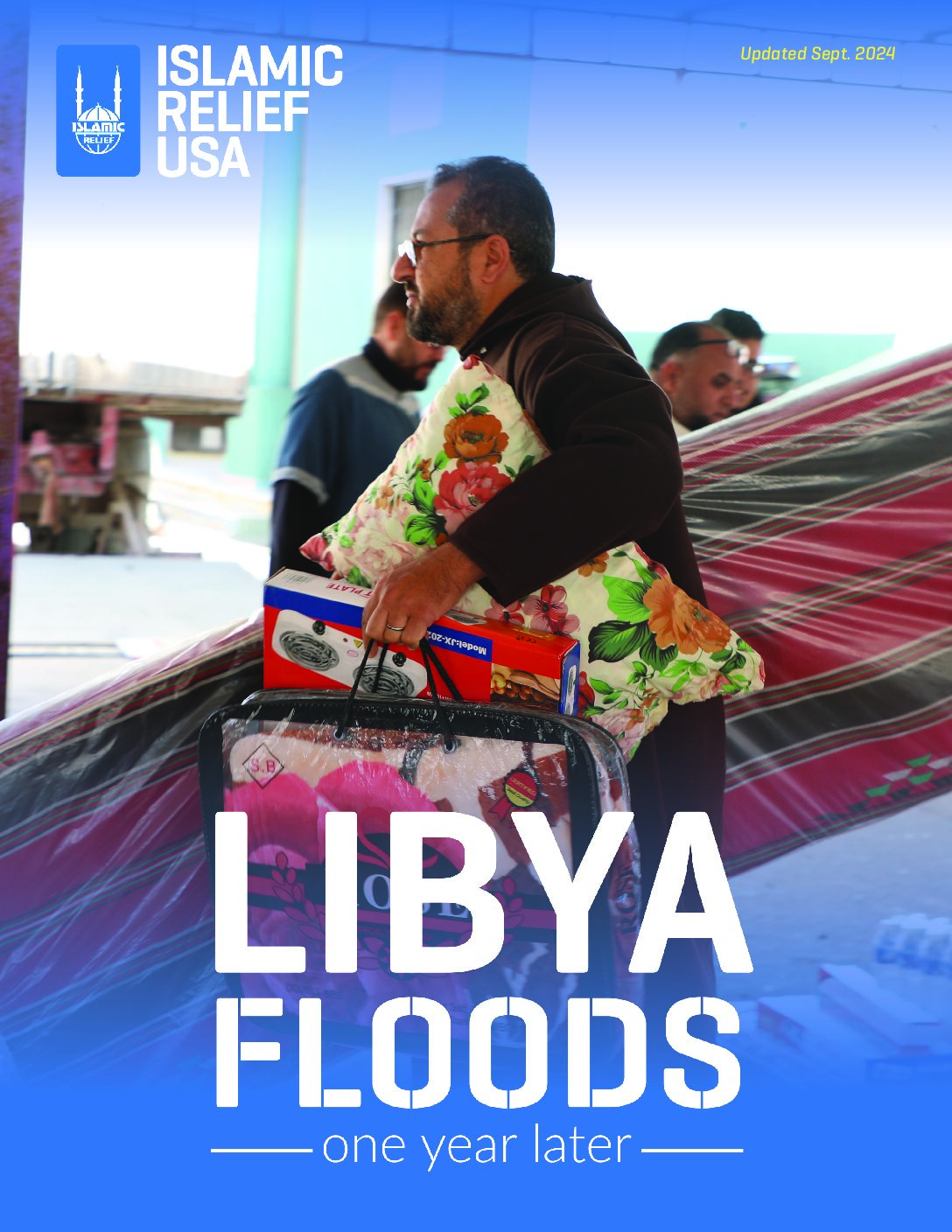Libya Floods: One Year Later
In September 2023, heavy rainfall brought by Storm Daniel caused major flooding in Derna, Libya. Thousands of people were killed and entire neighborhoods were swept away, leaving thousands more displaced. In response, IRUSA worked with local partners to provide immediate emergency aid including food and essential non-food items to families in need. To this day, we continue to focus on long-term development aid.
Focus on Libya
Political volatility, long-term effects of the pandemic, and Russia’s invasion of Ukraine have all stifled Libya’s economy. Over 50% of the youth population is unemployed, one of the highest rates in the world. To add, Libya is home to various vulnerable populations including over 75,000 internally displaced people and over 616,000 returnees, as well as many refugees and migrants. Unfortunately, access to basic services including healthcare, education, and proper housing is made extremely difficult for them.
Our Dedication to Libya
Earlier this year, IRUSA committed to help families across Libya. In addition to our initial emergency response, our focus is on long-term development assistance to help pull vulnerable communities out of the cycle of poverty.
A few interventions include:
- Food aid
- Access to clean drinking water
Thank You
As of now, fundraising for Libya is temporarily paused. To support similar causes, donate here.
